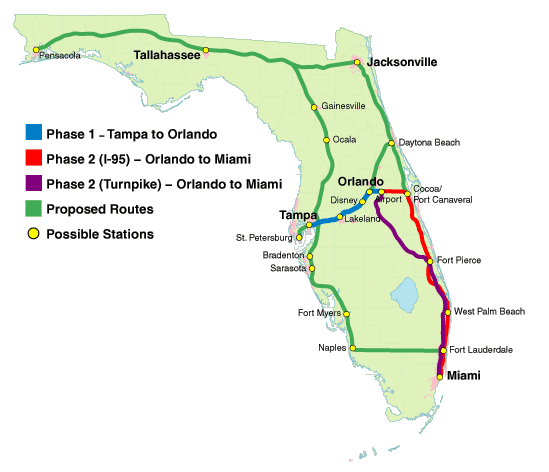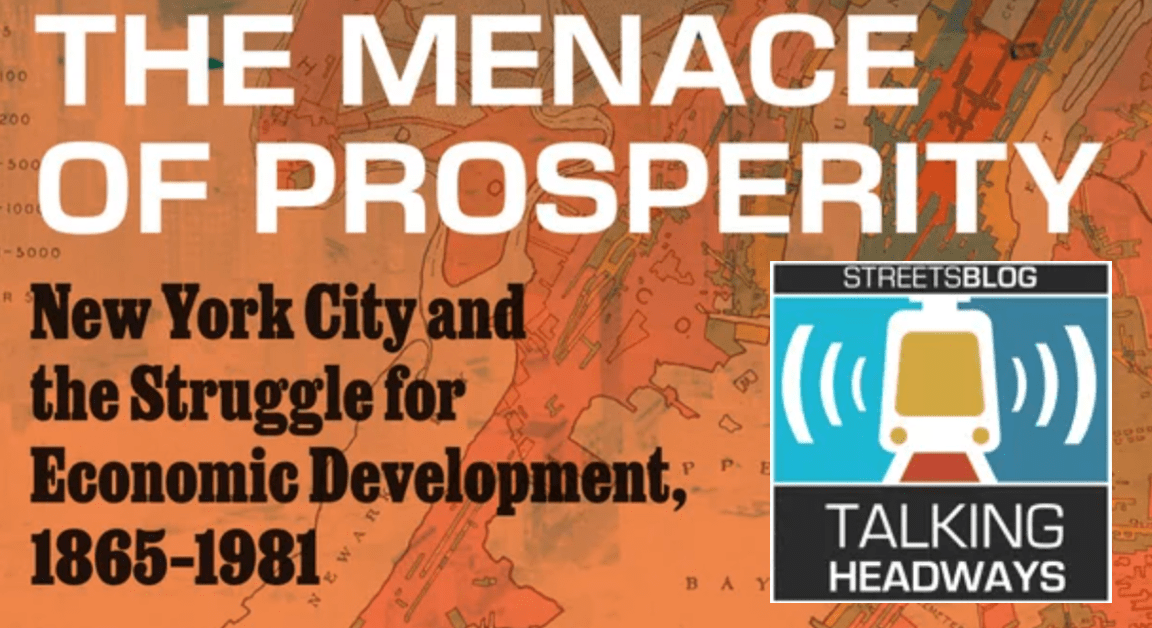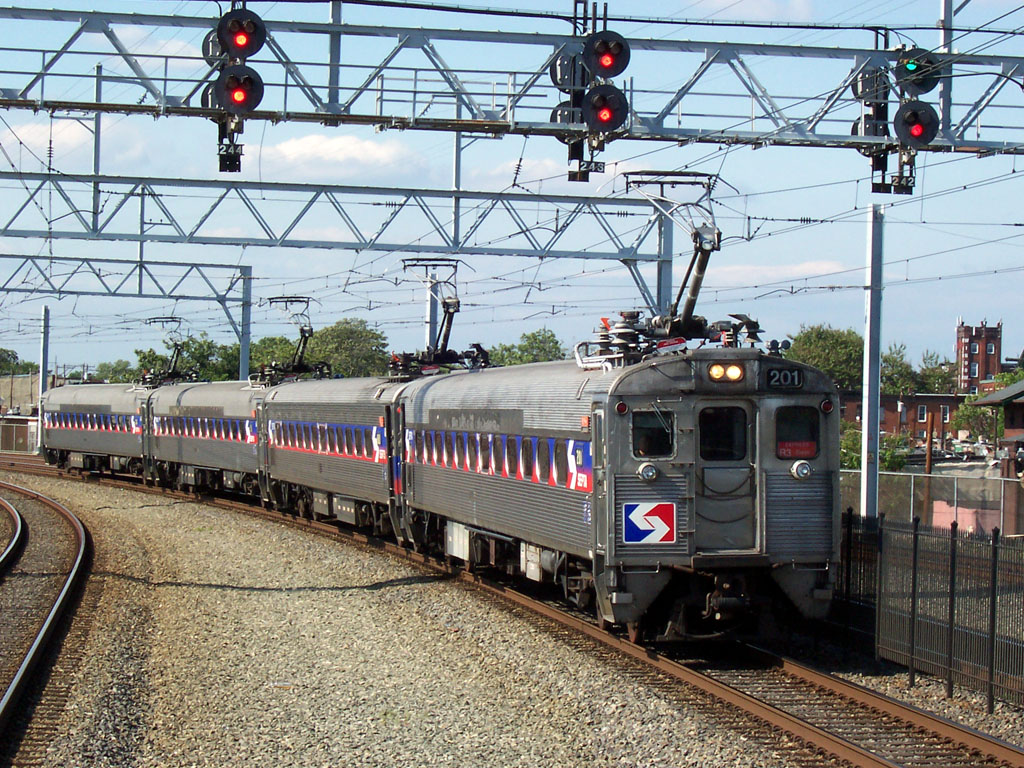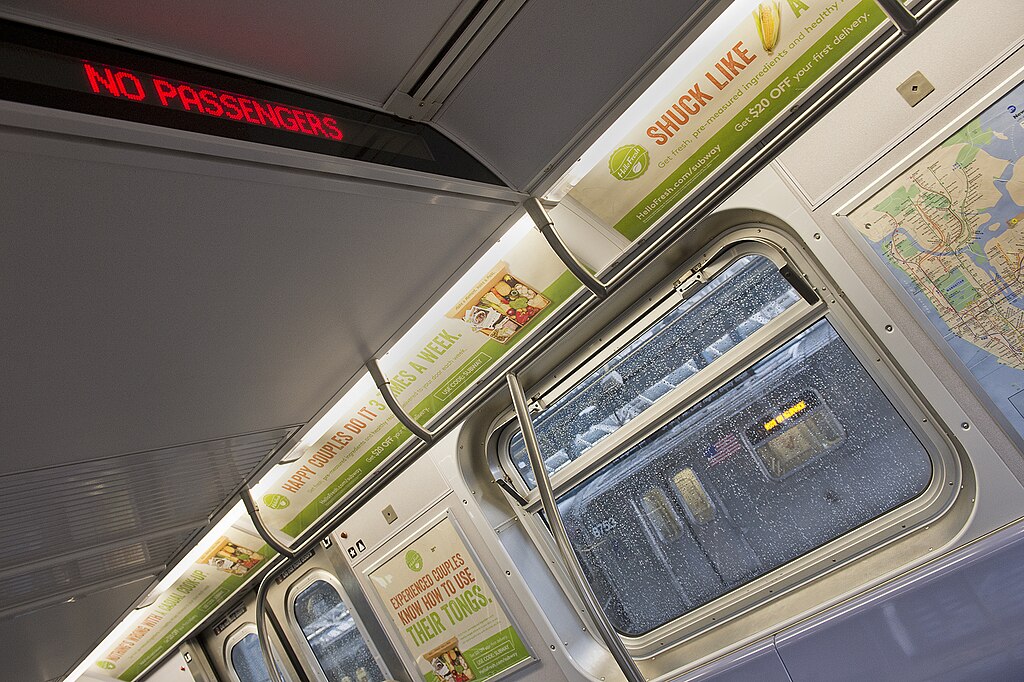We're keeping the news coming on the governor’s races we're following most closely. Check out our previous coverage of Wisconsin, Ohio, California, Texas, Maryland, Colorado, and Tennessee. This one could be the most important yet.
The most high-profile election in Florida is the three-ring circus of a Senate race, with Republican-turned-Independent Charlie Crist trailing badly in the polls against handsome Tea Partier Marco Rubio (who, by the way, has some unfortunate ideas about transportation), and Democrat Kendrick Meek bringing up the rear.
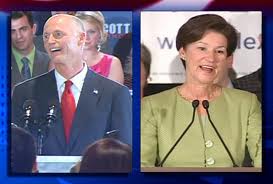
But let’s turn our attention to another Florida race that will also have big repercussions for transit and safe streets – and where the outcome tomorrow is anybody’s guess.
I’m talking about the contest for governor between Democrat Alex Sink and Republican Rick Scott, who are in a dead heat heading toward Election Day. At stake? The federal government’s second biggest investment in high speed rail.
In recent days, Scott has softened his opposition to the proposed rail line connecting Orlando to Tampa, now saying he just wants to know the final costs. But as recently as last week, he said in a debate that he’d withhold any state money required for the project. The state has already received $1.25 billion from the feds but will need to kick in at least that much to get it done.
Sink, the state’s chief financial officer, supports the rail line. It’s part of her plan to change Florida’s status as, in her words, a “super donor state” that gets back 86 cents for every dollar Florida sends to the federal government in gas taxes. She makes clear that some of that should be for transit. She’s also a proponent of freight rail, and is considering offering tax incentives for businesses that ship by rail instead of trucks.
The state is working on commuter rail lines, which the Florida Public Transportation Association deems to be "as important, if not more important, to the economy of Florida as the sexy high speed rail project." The SunRail line, already with a dedicated funding source and established right-of-way, will follow existing freight tracks in Central Florida. And TriRail, which already runs 50 trains a day in South Florida, recently got a boost from the governor.
“Charlie Crist called a special session to ensure that SunRail secured a source of funding independent of the whims of FDOT,” said Tony Garcia, editor of TransitMiami. The secured funding comes in the form of a $2 charge on rental cars, which, in a tourist state like Florida, is significant.
On SunRail, Sink hits Scott where it hurts. She accuses the hospital-chain executive of ignoring the needs of “Orlando Health, Florida Hospital and other businesses along the 61-mile line, who are counting on SunRail and its 17 stations to spawn good jobs, housing opportunities and lots of private-sector investment.”
When AAA asked both candidates what they would do to boost highway safety, Scott said he’d build more highways (and fund maintenance and law enforcement). Sink’s response was a little more forward-thinking. She said she’d “seek to expand the percentage of federal safety funds that FDOT spends on bicycle and pedestrian safety programs.”
She also said she’d have FDOT study whether new road projects actually improved safety “over the ones they replaced.”
Her campaign website has a special section on transportation, where she pledges to “develop innovative projects that address congestion, reduce emissions and create more livable communities.” She even wants a sort of statewide TIGER program to give competitive grants for transportation projects.
Sink and Scott both pledge to veto the kind of raids that the Transportation Trust Fund that the Florida legislature tried to pull off last year, brought to a halt, rather heroically, by Governor Crist (yes, the same Crist that gave up the governor’s mansion to, in all likelihood, go down in humiliating defeat to Republican Rubio).
Garcia of TransitMiami says Scott will disable Florida’s protections against sprawl, while Sink will strengthen them. He says a lot of the power over those issues rests in the Department of Community Affairs and FDOT, and he hopes Alex Sink is the one controlling those agencies for the next four years.
Another big issue for Florida is oil drilling. Scott thought the post-spill ban on drilling was “naïve” and a “knee-jerk reaction.” Meanwhile, Sink proposed a constitutional amendment to ban offshore oil drilling in Florida waters.
This is one of the closest races this year, and one of the most significant for transportation. A lot is riding on how Floridians vote tomorrow.
